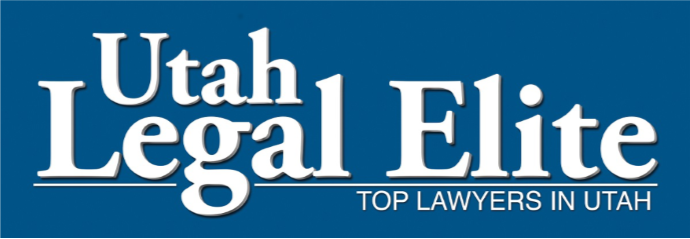Compensación de trabajadores
COMPENSACIÓN DE TRABAJADORES
ÁREA DE PRÁCTICA / ABOGADOS DE COMPENSACIÓN DE TRABAJADORES DE UTAH
Nos especializamos en todos los aspectos del cumplimiento y litigio de compensación de trabajadores. Nuestros abogados experimentados son contratados por empleadores y transportistas para garantizar que la exposición sea limitada y que las leyes del estado de Utah se apliquen correctamente.
Las leyes de compensación para trabajadores de Utah son el remedio exclusivo para los trabajadores lesionados en el trabajo. Estas leyes están diseñadas para brindar beneficios oportunos a los trabajadores y garantizar que los empleadores estén protegidos de reclamos frívolos y excesivos, así como de la incertidumbre y el costo de los litigios civiles tradicionales. Estas leyes brindan beneficios a los trabajadores y sus dependientes por lesiones o muertes sufridas debido a accidentes o enfermedades relacionadas con el trabajo. Nuestros abogados se especializan en defender a empleadores y compañías de seguros en todos los aspectos del cumplimiento y litigio de compensación laboral. El seguro de compensación para trabajadores es obligatorio según la ley de Utah y brinda beneficios a los trabajadores que sufren lesiones en el lugar de trabajo. Este seguro proporciona a los empleadores representación legal para garantizar que las leyes del estado de Utah se apliquen de manera justa y correcta. Los clientes de nuestra firma incluyen algunos de los empleadores y compañías de seguros más respetados. Nuestra firma trabaja diligentemente para asegurar que la exposición de nuestros clientes sea limitada. El sistema de compensación para trabajadores protege a los empleadores al limitar la cantidad que un trabajador lesionado puede recuperar de un empleador. Nuestra firma aboga en nombre del empleador y la aseguradora para garantizar que las leyes se apliquen correctamente y que los trabajadores reciban solo los beneficios a los que tienen derecho conforme a la ley. Nuestros abogados son expertos en la interpretación y aplicación de estas leyes y reglas.
LEY DE COMPENSACIÓN PARA TRABAJADORES DE UTAH
La Ley de Compensación para Trabajadores de Utah es un recurso exclusivo para los empleadores, sus funcionarios, agentes y empleados.
Las reglas que rigen la administración de la WCA se pueden encontrar aquí.
AUDITORÍAS DE COMPENSACIÓN LABORAL
Nuestros abogados trabajan con los empleadores para revisar los archivos de empleo y brindar capacitación sobre el cumplimiento de la compensación laboral. Esta simple medida preventiva protege a los empleadores y proporciona una sólida posición defendible para cuando surjan reclamos.
ACTUALIZACIONES RECIENTES DE LA LEY DE COMPENSACIÓN PARA TRABAJADORES
ABOGADOS DE COMPENSACIÓN DE TRABAJADORES EN RICHARDS BRANDT EN SALT LAKE CITY
FREQUENTLY ASKED QUESTIONS (FAQS)
BUSINESS TRANSACTIONS & CORPORATE GOVERNANCE / FEATURED FAQS
P: ¿Es una LLC o una corporación adecuada para mi negocio?
Answered by:
A: To decide which entity is right for you, we look at: liability, taxation, and maintenance. Both corporations and LLC’s have limited personal liability—this means that owners are usually not responsible for business debts. However, corporations and LLC’s are taxed very differently—corporations are classified as a separate taxable entity, whereas LLC’s are typically taxed as a pass-through entity (unless you choose otherwise). And corporations and LLC’s have different levels of maintenance—LLC’s have fewer reporting requirements and can operate solely with members acting as the managers. Conversely, corporations are required to hold certain annual meetings, keep certain records, and appoint boards and officers to manage the company for the stockholders. Every situation is unique so we recommend that you consult with an attorney in making your decision. Contact our firm, Richards Brandt, if we can help you decide which entity is right for you.
P: ¿Es una LLC o una corporación adecuada para mi negocio?
Answered by:
A: To decide which entity is right for you, we look at: liability, taxation, and maintenance. Both corporations and LLC’s have limited personal liability—this means that owners are usually not responsible for business debts. However, corporations and LLC’s are taxed very differently—corporations are classified as a separate taxable entity, whereas LLC’s are typically taxed as a pass-through entity (unless you choose otherwise). And corporations and LLC’s have different levels of maintenance—LLC’s have fewer reporting requirements and can operate solely with members acting as the managers. Conversely, corporations are required to hold certain annual meetings, keep certain records, and appoint boards and officers to manage the company for the stockholders. Every situation is unique so we recommend that you consult with an attorney in making your decision. Contact our firm, Richards Brandt, if we can help you decide which entity is right for you.
P: ¿Es una LLC o una corporación adecuada para mi negocio?
Answered by:
A: To decide which entity is right for you, we look at: liability, taxation, and maintenance. Both corporations and LLC’s have limited personal liability—this means that owners are usually not responsible for business debts. However, corporations and LLC’s are taxed very differently—corporations are classified as a separate taxable entity, whereas LLC’s are typically taxed as a pass-through entity (unless you choose otherwise). And corporations and LLC’s have different levels of maintenance—LLC’s have fewer reporting requirements and can operate solely with members acting as the managers. Conversely, corporations are required to hold certain annual meetings, keep certain records, and appoint boards and officers to manage the company for the stockholders. Every situation is unique so we recommend that you consult with an attorney in making your decision. Contact our firm, Richards Brandt, if we can help you decide which entity is right for you.
BUSINESS TRANSACTIONS & CORPORATE GOVERNANCE – CASE STUDIES
Utah Manufacturing Company Needed Employment Contracts For Key Staffers
Utah Construction Company Needed Planning For Business Growth & Protection
Utah Family Enterprise Needed Guidance and Representation to Sell Business
REVIEWS
Utah Workers’ Compensation: The Important Distinction Between Accident and Disease

January 2015
What is an industrial accident?
The answer to this question is of paramount importance to both employers and injured workers in Utah. The amount of benefits available to an injured worker, and potentially owed by an employer, are directly impacted by whether an industrial injury is classified as an “industrial accident” under the Utah Workers’ Compensation Act, or an “occupational disease” under the Utah Occupational Disease Act.
Utah workers’ compensation law is somewhat unique in that it allows for apportionment in occupational disease claims. Apportionment allows a court to identify all causes of a medical condition, and then adjust the benefits awarded to reflect only the percentage of the injury actually caused by the employment. This system ensures fairness as the worker is paid for the industrial portion of her injury, no matter how slight, and the employer is released from liability for any non-industrial causes of the worker’s condition.
In contrast, apportionment is not available in industrial accident claims. A worker injured by “accident” is awarded full benefits for her entire condition upon proving her claim—even if the industrial accident only slightly contributes to, or aggravates a primarily non-industrial injury. The tradeoff is that, unlike in occupational disease claims, the employment is not assumed to be a legal cause of the worker’s condition. Instead that causal connection must be proven by the worker, the failure of which completely bars an award of benefits.1
Historically, Utah courts drew a common-sense dividing line between the two types of claims. An “industrial accident” was logically defined as a distinct, injury-producing event at work (e.g., falling off a ladder). An “occupational disease” was considered a medical condition that developed gradually as a result of a worker’s exposure to the regular duties of employment (e.g., extensive use of a ladder every day for months or years, resulting in a damaged knee).2
Unfortunately, Utah courts have since departed from that common-sense distinction. In the 1940s, Utah passed an exceptionally restrictive statute that essentially limited occupational disease claims to only a few, specifically identified types of conditions. The courts reacted by steadily expanding the definition of “industrial accident” to cover those gradually developing conditions which fell outside the narrow coverage of the new occupational disease statute, but which also failed to meet the original definition of “industrial accident” due to their gradual onset. Unfortunately, this initially well intentioned expansion has proceeded unchecked for nearly 75 years, and has now far exceeded the bounds of necessity. The courts’ current interpretation of the law essentially allows all gradually developing conditions (even those arising over a period of years) to be claimed as “industrial accidents.” This unbridled expansion has essentially caused a de facto repeal of the Occupational Disease Act and its apportionment provision.
The Utah Legislature has, somewhat recently, indicated its desire to reverse this unnecessary judicial expansion. In 1991, a new Occupational Disease Act was enacted, eliminating the restrictions of the original Act, and expressly providing compensation for “all” injuries and conditions gradually caused by the duties of employment. However, in the 23 years since its enactment, the Utah appellate courts have not been presented with the opportunity to interpret the “new” statute and define its impact upon the current expanded interpretation of what constitutes an industrial accident. As a result, the lower courts have maintained the status quo, continuing to apply the judicially expanded interpretation of the now superseded Occupational Disease Act. Through a currently-pending appeal before the Utah Court of Appeals, our firm has provided the Court with the opportunity to interpret the new statute. In doing so, we have requested that the Court give force to the Legislature’s intent that there be a clear and logical distinction between “industrial accidents” and “occupational diseases.” In issuing this challenge to the Court, we acknowledge the general hesitance of appellate courts to overturn longstanding precedent. However, we are hopeful that the Court will see the overwhelming need for clarification and reform in this hotly contested area of law. The specific details of the case will be shared in a second installment of this article once the Court of Appeals has rendered its decision.










Utah Workers’ Compensation: The Important Distinction Between Accident and Disease